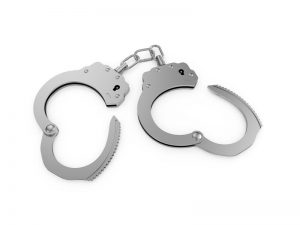Massachusetts Criminal Defense
Springfield, MA Criminal Defense Lawyer
Defending Criminal Charges In Hampshire & Hampden
The maximum sentence for a misdemeanor is 2 1/2 years in the House of Corrections. In some cases, alternative sentencing solutions such as rehabilitation programs or community service can be pursued in lieu of incarceration.
Misdemeanors are usually handled by the district or municipal court.
Defining Misdemeanors and Felonies in Massachusetts
Crimes are classified as misdemeanors or felonies. The most significant difference between the two is the severity of the punishment. In Massachusetts, a misdemeanor is defined as an offense that cannot be punished by a state prison sentence.
Sentencing
The maximum sentence for a misdemeanor is 2 1/2 years in the House of Corrections. In some cases, alternative sentencing solutions such as rehabilitation programs or community service can be pursued in lieu of incarceration.
Misdemeanors are usually handled by the district or municipal court.
Felonies
A felony is the most serious crime a person can be charged within Massachusetts and warrants prison sentences ranging from one year to life without parole.
A felony conviction can also result in the loss of certain privileges or constitutional rights such as the right to own a gun or vote, loss of citizenship, loss of job, loss of public housing benefits, and the inability to obtain a student loan.
Felony crimes may include:
- drug charges
- arson
- burglary
- armed robbery
- murder and/or attempted murder
- rape and/or sexual assault
- kidnapping
- aggravated assault and battery.
Less serious felonies can be heard in district court but most are heard in state superior court.
Zealous Defense Against Criminal Charges:
The criminal defense team at the Law Office Of Thomas Kokonowski is well-equipped to handle charges ranging from a simple misdemeanor to the most serious felony charge. As your legal counsel, we provide high-quality representation in the following areas:
- Initial investigation, police inquiry, grand jury investigation
- Arrest, arraignment, bail argument (if necessary)
- Pretrial motions, motions to suppress evidence, motions to dismiss
- Plea negotiations, trials, jury trials
- Probation violations
Types of Criminal Charges:
Drunk Driving/OUI
In Massachusetts, it is illegal to operate a car under the influence of alcohol and/or drugs, otherwise known as OUI. Drunk driving laws are strict in the Commonwealth. You do not have to be driving the vehicle in order to be charged and convicted. Simply having your keys in the ignition is enough to constitute “operation.”
An OUI conviction could mean losing your driver’s license, mandatory completion of an alcohol education program, fines, and jail time.
Effective Defenses
Even if your BAC was .08 percent or higher, there are many effective defenses available to fight an OUI. An OUI attorney at Kokonowski & Kokonowski can:
- challenge the constitutionality of the traffic stop and the arrest
- dispute the validity of the Breathalyzer
- dispute the validity of the blood results
- dispute the validity of field sobriety tests
- scrutinize whether the police violated your rights or followed improper protocol
Sex Crimes
The mere allegation of sexual misconduct is enough to ruin your reputation, cost you your job, and jeopardize your relationships. Sex offenses are among the most heavily prosecuted crimes in the Commonwealth.
Not only could you face time behind bars, you would have to register as a convicted sex offender for life on the Massachusetts Sex Offender Registry Board. The severity of punishment for sex crimes depends on a number of factors, some of which include whether there was consent, the age of the alleged victim, and prior criminal history.
Sex Charge Defense
The sex crime defense attorneys at the Law Office Of Thomas Kokonowski understands that these charges can bring feelings of shame and embarrassment but don’t let that stop you from seeking legal help.
Our sex crime attorneys have extensive experience defending against a wide range of charges including but not limited to:
- rape
- child pornography
- forcible rape
- statutory rape
- indecent assault
- a battery on a child under 14
- possession of child pornography
- lewd and lascivious conduct
- prostitution.
Assault/Assault and Battery
Threatening another person with bodily harm can lead to an assault charge in Massachusetts. This is true regardless of whether the person was physically struck.
As long as they feared they were in imminent danger of being hurt, an assault charge can be brought forth.
More on Battery
Battery, on the other hand, involves making physical contact with someone without their consent. Assault and assault and battery are misdemeanors that carry up to 2 1/2 years in jail and fines up to $1,000.
Your penalty can increase to 5 years in prison and fines up to $5,000 if the crime was committed using a weapon, against a child, pregnant person, elder, someone with a disability or resulted in serious bodily injury.
Assault and assault and battery charges often arise out of an argument or some other altercation. Effective defenses that may apply to your case include:
- you acted in self-defense to protect yourself or others
- it was an accident and you had no malicious intent to hurt the person
- you were falsely misidentified
Drug Crimes
Massachusetts imposes some of the toughest penalties for drug-related crimes in the country, including mandatory minimum sentences and loss of driving privileges.
Common types of drug crimes include:
- unlawful possession
- distribution
- manufacture of controlled substances
- trafficking of controlled substances like heroin, cocaine, marijuana and LSD or the possession or sale of unauthorized prescription medication such as Percocet, Oxycontin and Vicodin.
Factors Considered
There are several factors that can enhance sentencing including:
- the type
- weight
- the quantity of illegal substance/s
- whether a minor was involved
- whether the crime was committed near a school zone
Explore Every Legal Option
The drug crime attorneys at the Law Office Of Thomas Kokonowski are committed to exploring all possible avenues of defense when taking on drug cases, some of which may include:
- challenging the legality of the drug’s search and seizure
- whether probable cause existed to search you in the first place
- filing a motion to suppress any evidence that was obtained illegally
We will advocate for rehabilitation and treatment instead of incarceration. Many district courts in Massachusetts have drug courts that favor treatment.
Weapons Charges
The second amendment guarantees your right to bear arms but states can criminalize certain actions involving firearms and other weapons.
The most common gun crimes prosecuted in Massachusetts courts include:
- having a firearm in your vehicle without a permit
- possessing a machine gun
- possessing brass knuckles
- a ballistic or locking knife
- throwing stars
- nunchucks
In addition, other items; carrying a rifle on a public way; possession of a firearm in the commission of a felony.
Weapons-related offenses in Massachusetts have serious repercussions and may include mandatory minimum sentences. As your legal representative, we will fight for your rights.
Homicide/Murder
Taking another person’s life is as serious as it gets in Massachusetts and carries the maximum state penalty of life in prison. The Commonwealth defines murder as the unlawful killing of a human being.
There are various degrees of murder charges:
- First-degree murder is the most serious charge and involves killing with deliberate premeditation and malice.
- Second-degree murder, also known as “felony murder” is killing without premeditation that occurred in the commission of another felony crime such as rape or robbery.
The criminal defense attorneys at Kokonowski & Kokonowski will work tirelessly to devise an effective defense. Depending on the circumstances of your case, we may:
- present alibi witnesses
- point to scientific evidence
- point o forensic evidence
- demonstrate lack of intent
- argue self-defense
- plea insanity, etc.
Larceny/Theft
Larceny or theft is divided into two categories in Massachusetts: petty larceny and grand larceny. Property stolen with a value less than $250 will result in a misdemeanor petty larceny charge and is subject to one-year imprisonment and a fine up to $300.
If the value of the property stolen exceeds $250, the larceny charge will be a felony, punishable by up to 5 years imprisonment and a fine of up to $25,000.
White Collar Crimes
White collar crime is an umbrella term used to describe a broad range of financially motivated non-violent criminal offenses.
Common types of white collar crimes include:
- fraud
- embezzlement
- money laundering
- insider trading
- racketeering
- bribery
- extortion
- securities and antitrust violations
- cybercrime
These are serious charges that can fall under state or federal jurisdiction and are often investigated by regulatory agencies like the Federal Bureau of Investigation (FBI), Department of Justice (DOJ), Securities and Exchange Commission (SEC), Internal Revenue Service (IRS).
White-Collar Conviction
A white-collar conviction has serious repercussions including:
- imprisonment
- steep fines
- probation
- community service
- loss of professional license
- restitution to the victim
In addition to these criminal penalties, you face potential damage to your reputation, career, relationships, and livelihood. The white collar crime lawyers at Kokonowski & Kokonoswki know how high the stakes are and offer an aggressive approach to taking on these charges.
We are experienced in handling all stages of the grand jury investigation and indictment process and can handle all communication with the investigative agencies on your behalf.
College Crimes
If you are charged with a criminal offense while attending college, you will face a criminal proceeding and a disciplinary hearing at your school.
Everything you’ve worked hard for could be in jeopardy — you may lose your scholarship or be disqualified from attaining a student loan or grant, be put on academic probation, even be expelled.
At Kokonowski & Kokonowski, we represent college students accused of a variety of criminal offenses including:
- minor in possession of alcohol
- minor transporting alcohol
- using a fake I.D.
- disorderly conduct
- resisting arrest
Our lawyers will represent you in criminal court and in front of your school’s disciplinary board and do our best to provide a compelling defense that keeps your record clean and preserves your future opportunities.
Criminal Courts in Western Massachusetts
Your criminal case will be prosecuted in the county where the alleged crime was committed. From the Berkshires to the beach, we’ve got you covered.
The Law Office Of Thomas Kokonowski practices in all Massachusetts District, Superior, and Juvenile Courts, including:
In Hampshire County
- Northampton District and Superior Courts
- Belchertown District Court
- Orange District Court
- Greenfield District and Superior Courts
In Hampden County
- Springfield District and Superior Courts
- Westfield District Court
- Holyoke District Court
- Palmer District Court
- Chicopee District Court
In Worcester County
- Worcester District and Superior Courts
- East Brookfield District Court
- Westboro District Court
- Dudley District Court
- Attleboro District Court
Other court experience includes locations in:
- Suffolk Superior Court
- Boston Municipal Court
- Barnstable Superior Court
- Barnstable District Court
- Orleans District Court
Massachusetts Trial Courts: District and Superior Courts
Almost all criminal cases enter the system through the District Court either through a complaint by the local police department or a private complaint.
The District Court has jurisdiction over all misdemeanor cases and some felony cases. The general rule is that the District Court decides cases for which the maximum penalties for a crime is no more than 5 years’ imprisonment.
The most serious cases take place in the Superior Court.
The Superior Courts in Massachusetts have exclusive original jurisdiction over first-degree murder cases. In superior court, cases begin with an indictment (a document listing the charges) that has been returned by a grand jury.
The Springfield District Court in Hampden County is located at the Civil Clerk’s Office on 50 State Street and hears cases for crimes committed in the following communities:
- Longmeadow
- Springfield
- West Springfield
Overview of Criminal Process in Massachusetts Trial Courts
Being charged with a crime is a harrowing experience, especially if this is the first time you’ve been in trouble with the law.
Even though you are scared and overwhelmed, you can take comfort in knowing that the Law Office Of Thomas Kokonowski will guide you through the criminal justice system and keep the lines of communication open so you fully understand what is happening at every stage.
Arrest/Booking
Most criminal cases begin with a physical arrest. You will be transported to the local police station to be booked which is a process that entails having your picture taken, being fingerprinted, and providing basic contact information.
If police attempt to question or interrogate you regarding the alleged offense, you have the right to remain silent. To avoid self-incrimination, tell the officer/s that you wish to have a lawyer present before providing a statement.
Show Cause Hearing/Clerk’s Magistrate Hearing
If you were not arrested but received a criminal citation or summons through the mail, you must return the summons to a court within 4 days. The court will then mail you back a date for a “show cause” hearing or clerk’s magistrate hearing.
The purpose of this hearing is to determine whether there is sufficient evidence or reasonable cause to pursue legal prosecution.
Crimes that require a show cause hearing include:
- drug possession
- shoplifting
- assault
- negligent operation of a vehicle
- leaving the scene of an accident
A criminal defense lawyer at Kokonowski & Kokonowski can represent you at a show cause hearing and formulate an argument showcasing that there is not enough evidence to bring a criminal charge.
Arraignment
When the booking is complete, you will be placed in a holding cell. Within 24 hours of your arrest, you will attend an arraignment.
The purpose of an arraignment is to formally charge you with a crime and possibly set bail. In District Court, a clerk will enter a not guilty plea on your behalf. In Superior Court, you will be expected to stand up and enter a not guilty plea on your own.
Bail
For low-level crimes, bail is usually not needed. You would pay a $40 bail commissioner fee and be released of your own recognizance as long as you promise to return for your next court date.
In other cases, a judge may agree to release you but only under certain conditions such as: submitting to random drug testing, agreeing to stay away from a certain place or person,
If you have been accused of a more serious offense, a bail hearing is required. It’s beneficial to have an attorney represent you at a bail hearing so that we can seek to have your bail reduced or eliminated.
Pre-Trial Conference
Four weeks after your arraignment, a pre-trial conference will take place. Those in attendance will be yourself, your attorney, the prosecutor and the judge.
This conference provides an opportunity for us to gather all relevant facts pertaining to your case including requesting additional evidence from the prosecution.
Legally Obtained Evidence
In addition, if we determine that the police obtained evidence information illegally, we can file motions to exclude the evidence.
The overall purpose of this conference is to determine the “status” of the case — will the charges be dismissed, headed towards negotiating a plea agreement or is it likely proceeding to trial?
Plea-Bargaining
The majority of criminal cases end in a plea bargain and never make it to trial. Often, we can convince the prosecution to lower the charges against you or to agree to a more lenient sentence in exchange for a guilty plea or a Continuance without finding (CWOF).
A CWOF does not necessarily mean you are admitting guilt, rather you are acknowledging that enough evidence exists to incriminate you, and rather than fighting the charge at trial, you agree to certain probationary terms and conditions.
Trial
If a fair plea deal cannot be reached, the case will go to trial and you will decide to be tried in front of a jury of your peers or a judge without a jury.
The criminal defense attorneys at Kokonowski & Kokonowski are tenacious litigators prepared to fight for your rights.
Aggressive Criminal Defense
Regardless of the crime, you’ve been accused of committing, you are entitled to a strong defense. Tom Kokonowski is well-known and respected in the law-enforcement community and has established relationships with local court staff, judges, prosecutors, and probation officers.
With 34 years of experience and proven track record of success, you’ll be in capable hands.
Whether you want to pursue the best plea deal possible or fight the charge tooth and nail in the courtroom, we will aim to achieve the most favorable outcome possible.
Free Consultation Available
Call us today and we can help you understand the nature of the charges against you and the potential punishments you face.
If you are in police custody, we can make arrangements to meet you at the police station. In the interim, you have the right to remain silent.
Do not answer any questions without a lawyer present
When you contact us early enough in your case, you put time on your side. The prosecution is gathering evidence to convict you. Don’t wait another minute!
What Our Clients Have Shared About Our Services
Thomas Kokonowski Law BLog

8 Criminal Trial Wins in a Row for Defense Attorney Thomas Kokonowski https://www.masslive.com/westernmass/2024/11/hilltown-killing-mass-man-found-not-guilty-in-manslaughter-trial.html On November 25, 2024 a 12 member

Being charged with operating a vehicle under the influence of alcohol or other substances in Springfield, MA, can be a

Criminal defense lawyers play a crucial role in the justice system, advocating for the rights of individuals accused of committing
Contact Thomas Kokonowski
Springfield, MA Criminal Defense Lawyer
Defending Criminal Charges In Hampshire, Hampden & Franklin County
If you or a loved one is facing a criminal charge in Hampshire, Hampden, or Franklin County, the most important action you can take is to seek legal counsel to protect your rights. The Law Office Of Thomas Kokonowski will stand ready to be your advocate during this difficult time.
We understand the complexities of the criminal justice system in Massachusetts and will be there to guide and support you every step of the way.
Defining Misdemeanors and Felonies in Massachusetts
Crimes are classified as misdemeanors or felonies. The most significant difference between the two is the severity of the punishment. In Massachusetts, a misdemeanor is defined as an offense that cannot be punished by a state prison sentence.
Sentencing
The maximum sentence for a misdemeanor is 2 1/2 years in the House of Corrections. In some cases, alternative sentencing solutions such as rehabilitation programs or community service can be pursued in lieu of incarceration. Misdemeanors are usually handled by the district or municipal court.
Felonies
A felony is the most serious crime a person can be charged within Massachusetts and warrants prison sentences ranging from one year to life without parole.
A felony conviction can also result in the loss of certain privileges or constitutional rights such as the right to own a gun or vote, loss of citizenship, loss of job, loss of public housing benefits, and the inability to obtain a student loan.
Felony crimes may include:
- drug charges
- arson
- burglary
- armed robbery
- murder and/or attempted murder
- rape and/or sexual assault
- kidnapping
- aggravated assault and battery.
Zealous Defense Against Criminal Charges:
The criminal defense team at the Law Office Of Thomas Kokonowski is well-equipped to handle charges ranging from a simple misdemeanor to the most serious felony charge. As your legal counsel, we provide high-quality representation in the following areas:
- Initial investigation, police inquiry, grand jury investigation
- Arrest, arraignment, bail argument (if necessary)
- Pretrial motions, motions to suppress evidence, motions to dismiss
- Plea negotiations, trials, jury trials
- Probation violations
Types of Criminal Charges:
Drunk Driving/OUI
In Massachusetts, it is illegal to operate a car under the influence of alcohol and/or drugs, otherwise known as OUI. Drunk driving laws are strict in the Commonwealth. You do not have to be driving the vehicle in order to be charged and convicted. Simply having your keys in the ignition is enough to constitute “operation.”
An OUI conviction could mean losing your driver’s license, mandatory completion of an alcohol education program, fines, and jail time.
Effective Defenses
Even if your BAC was .08 percent or higher, there are many effective defenses available to fight an OUI. An OUI attorney at Kokonowski & Kokonowski can:
- challenge the constitutionality of the traffic stop and the arrest
- dispute the validity of the Breathalyzer
- dispute the validity of the blood results
- dispute the validity of field sobriety tests
- scrutinize whether the police violated your rights or followed improper protocol
Sex Crimes
The mere allegation of sexual misconduct is enough to ruin your reputation, cost you your job, and jeopardize your relationships. Sex offenses are among the most heavily prosecuted crimes in the Commonwealth.
Not only could you face time behind bars, you would have to register as a convicted sex offender for life on the Massachusetts Sex Offender Registry Board. The severity of punishment for sex crimes depends on a number of factors, some of which include whether there was consent, the age of the alleged victim, and prior criminal history.
Sex Charge DefenseThe sex crime defense attorneys at the Law Office Of Thomas Kokonowski understands that these charges can bring feelings of shame and embarrassment but don’t let that stop you from seeking legal help.
Our sex crime attorneys have extensive experience defending against a wide range of charges including but not limited to:
- rape
- child pornography
- forcible rape
- statutory rape
- indecent assault
- a battery on a child under 14
- possession of child pornography
- lewd and lascivious conduct
- prostitution.
Assault/Assault and Battery
Threatening another person with bodily harm can lead to an assault charge in Massachusetts. This is true regardless of whether the person was physically struck.
As long as they feared they were in imminent danger of being hurt, an assault charge can be brought forth.
More on BatteryBattery, on the other hand, involves making physical contact with someone without their consent. Assault and assault and battery are misdemeanors that carry up to 2 1/2 years in jail and fines up to $1,000.
Your penalty can increase to 5 years in prison and fines up to $5,000 if the crime was committed using a weapon, against a child, pregnant person, elder, someone with a disability or resulted in serious bodily injury.
Assault and assault and battery charges often arise out of an argument or some other altercation. Effective defenses that may apply to your case include:
- you acted in self-defense to protect yourself or others
- it was an accident and you had no malicious intent to hurt the person
- you were falsely misidentified
Drug Crimes
Massachusetts imposes some of the toughest penalties for drug-related crimes in the country, including mandatory minimum sentences and loss of driving privileges.
Common types of drug crimes include:
- unlawful possession
- distribution
- manufacture of controlled substances
- trafficking of controlled substances like heroin, cocaine, marijuana and LSD or the possession or sale of unauthorized prescription medication such as Percocet, Oxycontin and Vicodin.
Factors Considered
There are several factors that can enhance sentencing including:
- the type
- weight
- the quantity of illegal substance/s
- whether a minor was involved
- whether the crime was committed near a school zone
- challenging the legality of the drug’s search and seizure
- whether probable cause existed to search you in the first place
- filing a motion to suppress any evidence that was obtained illegally
We will advocate for rehabilitation and treatment instead of incarceration. Many district courts in Massachusetts have drug courts that favor treatment.
Weapons Charges
The second amendment guarantees your right to bear arms but states can criminalize certain actions involving firearms and other weapons.
The most common gun crimes prosecuted in Massachusetts courts include:
- having a firearm in your vehicle without a permit
- possessing a machine gun
- possessing brass knuckles
- a ballistic or locking knife
- throwing stars
- nunchucks
Homicide/Murder
Taking another person’s life is as serious as it gets in Massachusetts and carries the maximum state penalty of life in prison. The Commonwealth defines murder as the unlawful killing of a human being.
There are various degrees of murder charges:
- First-degree murder is the most serious charge and involves killing with deliberate premeditation and malice.
- Second-degree murder, also known as “felony murder” is killing without premeditation that occurred in the commission of another felony crime such as rape or robbery.
The criminal defense attorneys at Kokonowski & Kokonowski will work tirelessly to devise an effective defense. Depending on the circumstances of your case, we may:
- present alibi witnesses
- point to scientific evidence
- point o forensic evidence
- demonstrate lack of intent
- argue self-defense
- plea insanity, etc.
Larceny/Theft
Larceny or theft is divided into two categories in Massachusetts: petty larceny and grand larceny. Property stolen with a value less than $250 will result in a misdemeanor petty larceny charge and is subject to one-year imprisonment and a fine up to $300.
If the value of the property stolen exceeds $250, the larceny charge will be a felony, punishable by up to 5 years imprisonment and a fine of up to $25,000.
White Collar Crimes
White collar crime is an umbrella term used to describe a broad range of financially motivated non-violent criminal offenses.
Common types of white collar crimes include:
- fraud
- embezzlement
- money laundering
- insider trading
- racketeering
- bribery
- extortion
- securities and antitrust violations
- cybercrime
A white-collar conviction has serious repercussions including:
- imprisonment
- steep fines
- probation
- community service
- loss of professional license
- restitution to the victim
College Crimes
If you are charged with a criminal offense while attending college, you will face a criminal proceeding and a disciplinary hearing at your school.
Everything you’ve worked hard for could be in jeopardy — you may lose your scholarship or be disqualified from attaining a student loan or grant, be put on academic probation, even be expelled.
At Kokonowski & Kokonowski, we represent college students accused of a variety of criminal offenses including:
- minor in possession of alcohol
- minor transporting alcohol
- using a fake I.D.
- disorderly conduct
- resisting arrest
Criminal Courts in Western Massachusetts
Your criminal case will be prosecuted in the county where the alleged crime was committed. From the Berkshires to the beach, we’ve got you covered.
The Law Office Of Thomas Kokonowski practices in all Massachusetts District, Superior, and Juvenile Courts, including:
In Hampshire County
- Northampton District and Superior Courts
- Belchertown District Court
- Orange District Court
- Greenfield District and Superior Courts
In Hampden County
- Springfield District and Superior Courts
- Westfield District Court
- Holyoke District Court
- Palmer District Court
- Chicopee District Court
In Worcester County
- Worcester District and Superior Courts
- East Brookfield District Court
- Westboro District Court
- Dudley District Court
- Attleboro District Court
Other court experience includes locations in:
- Suffolk Superior Court
- Boston Municipal Court
- Barnstable Superior Court
- Barnstable District Court
- Orleans District Court
Massachusetts Trial Courts: District and Superior Courts
Almost all criminal cases enter the system through the District Court either through a complaint by the local police department or a private complaint.
The District Court has jurisdiction over all misdemeanor cases and some felony cases. The general rule is that the District Court decides cases for which the maximum penalties for a crime is no more than 5 years’ imprisonment.
The most serious cases take place in the Superior Court.
The Superior Courts in Massachusetts have exclusive original jurisdiction over first-degree murder cases. In superior court, cases begin with an indictment (a document listing the charges) that has been returned by a grand jury.
The Springfield District Court in Hampden County is located at the Civil Clerk’s Office on 50 State Street and hears cases for crimes committed in the following communities:
- Longmeadow
- Springfield
- West Springfield
Overview of Criminal Process in Massachusetts Trial Courts
Being charged with a crime is a harrowing experience, especially if this is the first time you’ve been in trouble with the law.
Even though you are scared and overwhelmed, you can take comfort in knowing that the Law Office Of Thomas Kokonowski will guide you through the criminal justice system and keep the lines of communication open so you fully understand what is happening at every stage.
Arrest/Booking
Most criminal cases begin with a physical arrest. You will be transported to the local police station to be booked which is a process that entails having your picture taken, being fingerprinted, and providing basic contact information.
If police attempt to question or interrogate you regarding the alleged offense, you have the right to remain silent. To avoid self-incrimination, tell the officer/s that you wish to have a lawyer present before providing a statement.
Show Cause Hearing/Clerk’s Magistrate Hearing
If you were not arrested but received a criminal citation or summons through the mail, you must return the summons to a court within 4 days. The court will then mail you back a date for a “show cause” hearing or clerk’s magistrate hearing.
The purpose of this hearing is to determine whether there is sufficient evidence or reasonable cause to pursue legal prosecution.
Crimes that require a show cause hearing include:
- drug possession
- shoplifting
- assault
- negligent operation of a vehicle
- leaving the scene of an accident
A criminal defense lawyer at Kokonowski & Kokonowski can represent you at a show cause hearing and formulate an argument showcasing that there is not enough evidence to bring a criminal charge.
Arraignment
When the booking is complete, you will be placed in a holding cell. Within 24 hours of your arrest, you will attend an arraignment.
The purpose of an arraignment is to formally charge you with a crime and possibly set bail. In District Court, a clerk will enter a not guilty plea on your behalf. In Superior Court, you will be expected to stand up and enter a not guilty plea on your own.
Bail
For low-level crimes, bail is usually not needed. You would pay a $40 bail commissioner fee and be released of your own recognizance as long as you promise to return for your next court date.
In other cases, a judge may agree to release you but only under certain conditions such as: submitting to random drug testing, agreeing to stay away from a certain place or person,
If you have been accused of a more serious offense, a bail hearing is required. It’s beneficial to have an attorney represent you at a bail hearing so that we can seek to have your bail reduced or eliminated.
Pre-Trial Conference
Four weeks after your arraignment, a pre-trial conference will take place. Those in attendance will be yourself, your attorney, the prosecutor and the judge.
This conference provides an opportunity for us to gather all relevant facts pertaining to your case including requesting additional evidence from the prosecution.
Legally Obtained Evidence
In addition, if we determine that the police obtained evidence information illegally, we can file motions to exclude the evidence.
The overall purpose of this conference is to determine the “status” of the case — will the charges be dismissed, headed towards negotiating a plea agreement or is it likely proceeding to trial?
Plea-Bargaining
The majority of criminal cases end in a plea bargain and never make it to trial. Often, we can convince the prosecution to lower the charges against you or to agree to a more lenient sentence in exchange for a guilty plea or a Continuance without finding (CWOF).
A CWOF does not necessarily mean you are admitting guilt, rather you are acknowledging that enough evidence exists to incriminate you, and rather than fighting the charge at trial, you agree to certain probationary terms and conditions.
Trial
If a fair plea deal cannot be reached, the case will go to trial and you will decide to be tried in front of a jury of your peers or a judge without a jury.
The criminal defense attorneys at Kokonowski & Kokonowski are tenacious litigators prepared to fight for your rights.
Aggressive Criminal Defense
Regardless of the crime, you’ve been accused of committing, you are entitled to a strong defense. Tom Kokonowski is well-known and respected in the law-enforcement community and has established relationships with local court staff, judges, prosecutors, and probation officers.
With 34 years of experience and proven track record of success, you’ll be in capable hands.
Whether you want to pursue the best plea deal possible or fight the charge tooth and nail in the courtroom, we will aim to achieve the most favorable outcome possible.
Free Consultation Available
Call us today and we can help you understand the nature of the charges against you and the potential punishments you face.
If you are in police custody, we can make arrangements to meet you at the police station. In the interim, you have the right to remain silent.
Do not answer any questions without a lawyer present
When you contact us early enough in your case, you put time on your side. The prosecution is gathering evidence to convict you. Don’t wait another minute!














